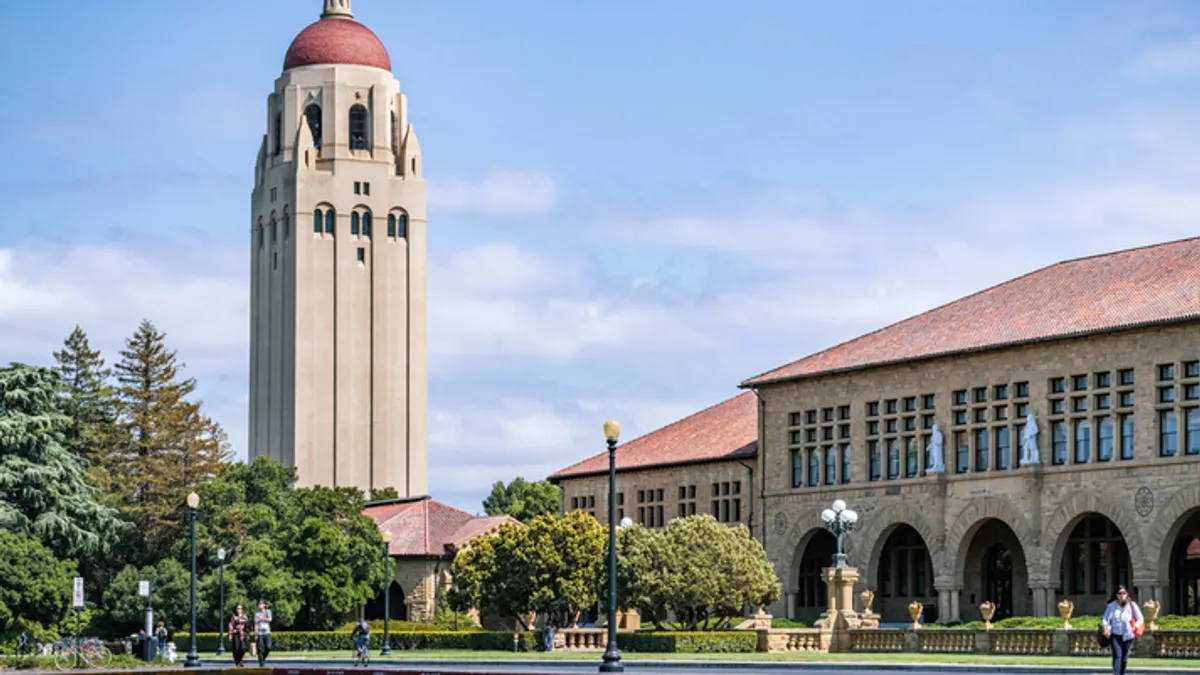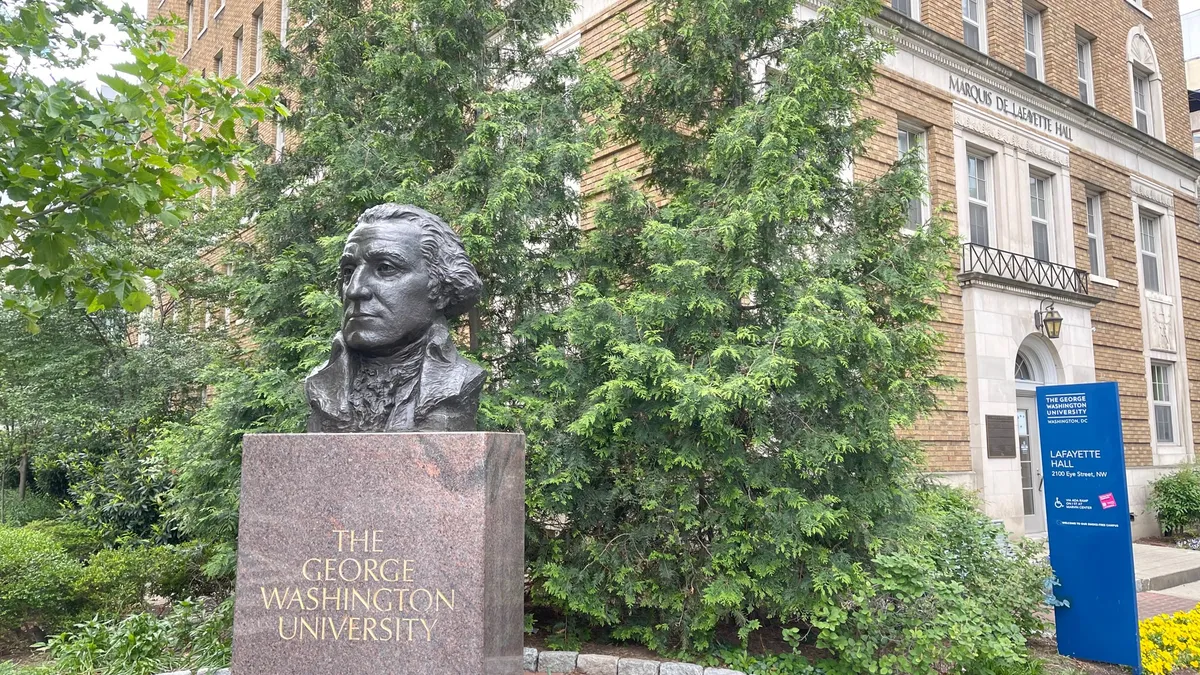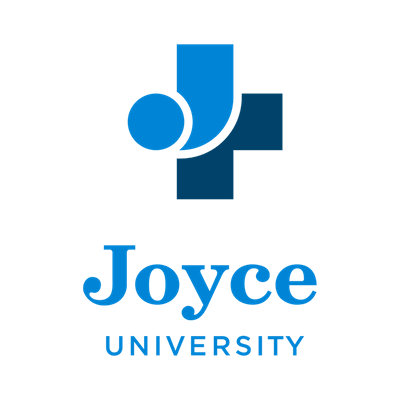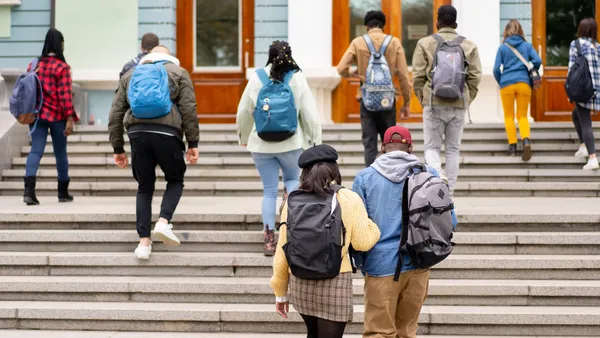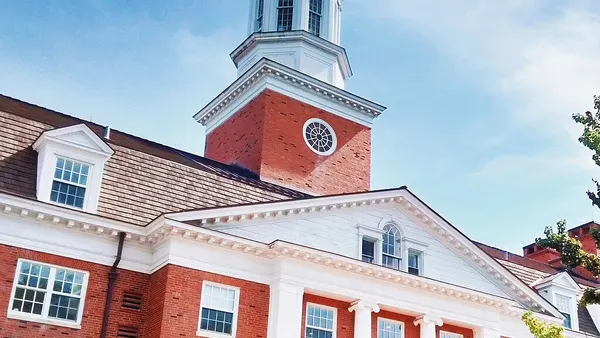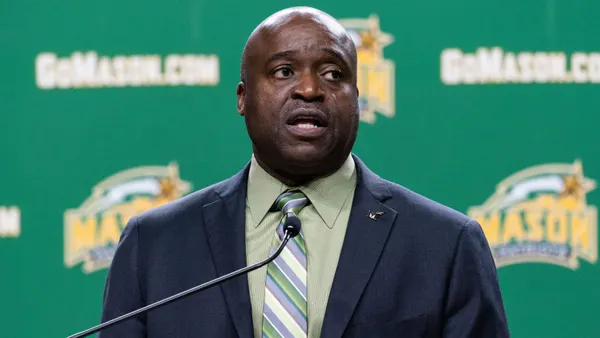Dive Brief:
- The U.S. Department of Education is in the midst of determining how to rewrite federal rules meant to protect students who took out student loans and were allegedly defrauded by their higher ed institutions, according to NBC News. The department currently has a backlog of 87,000 loan cancellation applications, which increased after the closure of for-profit institutions like ITT Tech.
- The Education Department clarified "borrower defense" regulations in 1994, deciding that loan forgiveness was allowable if a student had been defrauded by their college or university, but in the aftermath of the for-profit closures, President Obama's administration offered more student protections, which were subsequently frozen by Education Secretary Betsy DeVos pending further review. ED representatives said the 1994 rule was the starting point for negotiations.
- Student advocates hope the negotiations result in more stringent regulations and protections for students who have been defrauded, while supporters of for-profit universities are claiming the Obama administration would allow students to abuse loan forgiveness. Previous reporting showed that DeVos is considering offering some relief for defrauded students, instead of full loan forgiveness.
Dive Insight:
For-profit higher ed institutions had long felt that they were being unfairly targeted by the previous administration's regulations, and many believed Secretary DeVos's ED would be far more lenient. In June, when the Department announced it was stepping back from enforcing the Obama-era regulations, ED representatives stated that new rules should not only protect student loan borrowers, but should also protect higher ed institutions from "the excessively broad definitions of substantial misrepresentation and breach of contract, the lack of meaningful due process protections for institutions and 'financial triggers,'" indicating a willingness to accept the perspective of for-profit institutions accused of defrauding its students. In regards to some issues, DeVos has surprised her critics, including those who were concerned about how the Department under her tenure would handle bias claims from transgender students.
However, it may be difficult for the for-profit industry to retain the prominence it had prior to the myriad accusations of fraud and the closure of many of the industry's most well-known institutions. Traditional institutions have an opportunity to reach potential new students in the aftermath of the collapse of this industry, particularly non-traditional students who can help fill the gap that will widen due to the declining rate of traditional-age college students in the years to come. These schools cannot be passive about their outreach endeavors, however. For example, student veteran recently told Education Dive that for-profit institutions were the colleges and universities predominantly targeting active duty service members as potential students. There may have been dubious reasons for their pursuit, but nevertheless, traditional universities must have that same zeal in pursuing potential applicants from this and other non-traditional student groups.



